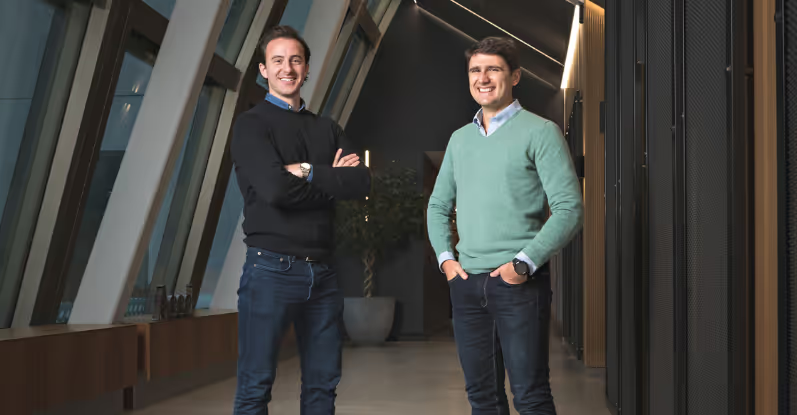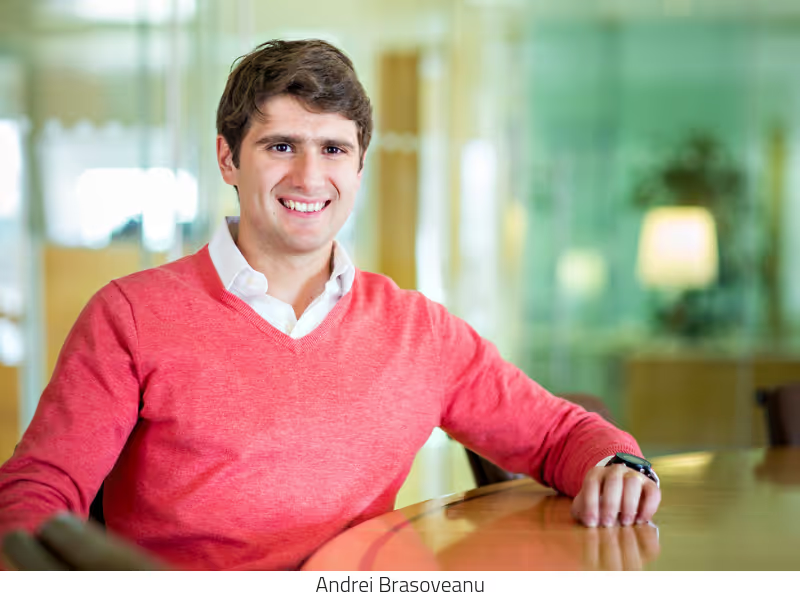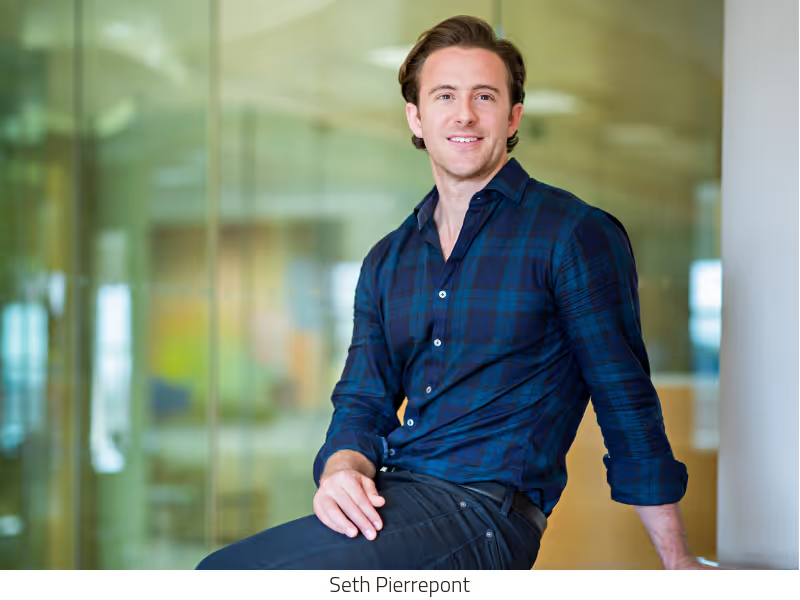Announcing our two newest London Partners, Seth Pierrepont & Andrei Brasoveanu

Venture capital is inherently a people business; it’s about spotting, cultivating and partnering with exceptional talent. That takes time, determination and hunger to figure out. For that reason, we couldn’t be more pleased to announce that we have two more Partners in our London team, Andrei Brasoveanu and Seth Pierrepont. Both have been with us since 2013, joining us early in their careers and quickly proving themselves true assets to the team and to the entrepreneurs we back.
Andrei led our recent Series A investments into Humio, the real-time observability solution, and dashdash, a cloud platform to help create web applications using a spreadsheet. He also played a key role in our early investments in and ongoing work with Celonis, UiPath, Instana, and Monzo. Andrei spends most of his time with entrepreneurs in the areas of enterprise software, cloud infrastructure and fintech.
Seth recently led our Series A investment into Anyfin, a consumer finance company that enables its customers to easily refinance their existing credit facilities. He was also pivotal in our investments and work with Kry, WorldRemit, Soldo, Snyk, Shift Technology, Callsign, FRVR and more. He’ll continue to invest in enterprise software, cyber security and consumer start-ups.
Andrei and Seth have not only demonstrated their passion for partnering with outstanding founders at the very early stages, but also have what it takes to help support them as they build their businesses over the long haul. We asked them about themselves and their experiences as early-stage investors in Europe.

Andrei Brasoveanu
What drew you to early-stage venture investing?
I found the idea of working closely with founders who are re-imagining entire industries incredibly exciting. Investing in the early company-building stages gives you the chance to forge a strong relationship with founders as an early supporter and partner, as well as to be at the forefront of new waves of technological change. Prior to Accel, I used to build automated trading strategies, and I saw first-hand how technology and automation can shake an entire industry (in this case, it was electronic trading). The prospect of playing a role in re-inventing every single aspect of our day-to-day life and work by backing and supporting entrepreneurs with ground-breaking ideas is a thrilling one.
What are the key things you look for in a founding team when deciding whether to invest in a company?
The top three things I look for in a founding team are: (1) a relentless drive and vision, (2) a strong founder-opportunity fit, and (3) the ability to attract and retain great people.
Firstly, I love seeing founders who don’t give up, regardless of circumstances, and who see a roadblock as an opportunity to step up and take the company to the next level. This enables them to always be one step ahead of the game. Secondly, it’s important for me to see a deep reason why the founding team are working on this idea over anything else and why they’re best positioned to win in a global market. This can often be based on past work experiences, technical domain expertise, family circumstances or even a personal obsession about a problem. Finally, it’s paramount that founders are able to surround themselves with the very best people at every level. The start-up journey isn’t one to take solo, and at every stage of the company you need to staff the best possible bench to give you the upper hand against competitors.
What do you see as the biggest challenge for building global category-leading businesses from Europe?
Access to experienced go-to-market talent (especially in enterprise sales) continues to be one of the hardest challenges for young businesses; it can, for example, take time to find a CFO with public market experience. But at the same time, there’s a deep pool of technical talent in Europe, ranging from core engineers to data scientists. Legal and tax considerations around stock options can also be a challenge, as it can be difficult to structure US-style option packages and incentives, especially across continental Europe.
What’s the best part of investing in Europe?
There’s no formula for the “right background” to succeed in Europe, which makes for some truly diverse founding teams. I work with teams straight out of college all the way through to senior executives with 20+ years of domain experience. Some founders live in towns of 100,000 people; others are based in 10-million-strong cities. Travelling across Europe to meet with founders and local investors has its perks, too – it has really opened my eyes to the rich cultural heritage that Europe has to offer, in which food, a passion of mine, plays a big part!

Seth Pierrepont
What drew you to early-stage venture investing?
The people, for sure. At the early stage, we're often just backing a killer team chasing a big idea. I'm fortunate that I get to spend my days meeting entrepreneurs who are full of ambition and optimism about what they're building. A lot of the work that we do at the board level also revolves around people - helping to attract great execs to the company or being a sounding board to the team as they work through different challenges.
Why did you choose London as your base?
I was working in the tech industry in San Francisco before moving to London close to a decade ago. It seemed somewhat of a contrarian bet to me at the time. Europe was still early in terms of tech ecosystem maturity, but there were a number of exciting signs. Now in 2019, it's more obvious - there have been several multi-billion dollar companies built in Europe and European companies are attracting world class talent and investment capital. On a personal note, I love travelling around Europe for work, which is still novel to me having grown up in the Midwest of the US.
What’s the best life hack you’ve learned from a founder or colleague?
An Accel founder, Ryan Smith, CEO of Qualtrics, has always impressed me with how thoughtful he is about his time. Beyond running Qualtrics, he's a father of four and scratch golfer. He methodically sits down every Sunday to lay out his personal and work schedule for the week, and then looks for 'doubles' - how to complete two or more tasks simultaneously. It's a great way to drive efficiency into your week and ensure you have time to take care of yourself and your family.
Where do you see the greatest opportunity?
I see a lot of near-term potential in healthcare. Not only is it a large and growing market (10% of GDP in most European countries), but it's also one that is relatively under-penetrated from a modern technology perspective and one in which the quality of service has deteriorated. On top of that, patients have been educated by services like Deliveroo, Spotify, Amazon to expect on-demand, personalised experience. I'd argue that to provide patients with the quality of care they have grown to expect, there has to be a change in how these services are delivered — just as we’ve seen in other industries. We're fortunate to have invested in several exciting healthcare companies - PillPack, Kry, Doctolib, and MyHeritage - so have a front-row seat to the transformation happening in this industry.
Great companies aren't built alone.
Subscribe for tools, learnings, and updates from the Accel community.
